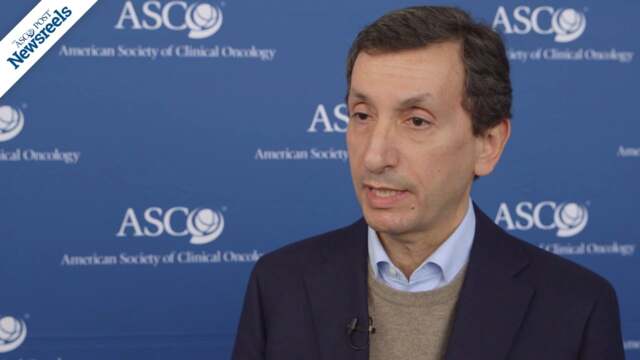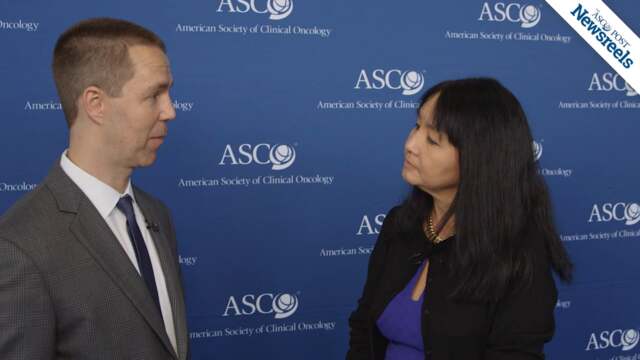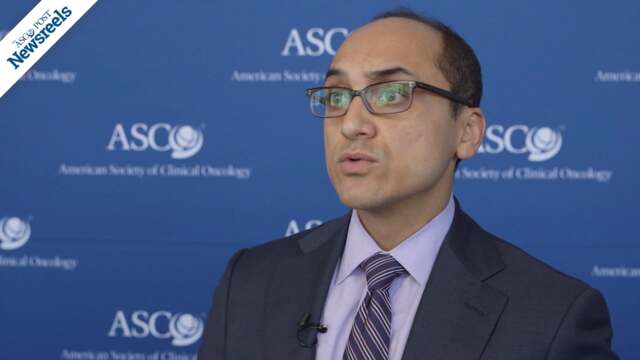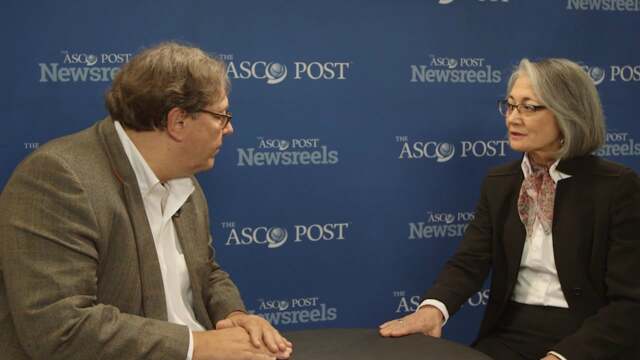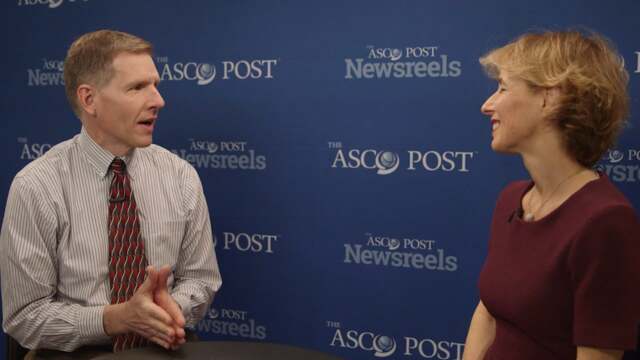Michele Cavo, MD, on Multiple Myeloma: Results From a European Myeloma Network Trial
2016 ASCO Annual Meeting
Michele Cavo, MD, of the Seràgnoli Institute of Hematology, Bologna University School of Medicine, discusses results from this phase III study of upfront autologous stem cell transplantation vs novel agent-based therapy for multiple myeloma (Abstract 8000). To see the Italian version of this interview, please click here.
Michele Cavo, MD, of the Seràgnoli Institute of Hematology, Bologna University School of Medicine, discusses in Italian results from this phase III study of upfront autologous stem cell transplantation vs novel agent-based therapy for multiple myeloma (Abstract 8000).

To see the English language version of this video, please
click here.
Eric Roeland, MD, of the University of California, San Diego, and Linda Van Le, MD, of the University of North Carolina discuss ways to manage symptoms that affect up to 80% of postmenopausal women, diminishing their quality of life.
Yousuf Zafar, MD, of Duke Cancer Institute, summarizes his educational lecture on the financial toxicities of treatment and the need to focus on both short- and long-term interventions to reduce the burden on patients.
A. Oliver Sartor, MD, of Tulane University, and Celestia S. Higano, MD, of the University of Washington, discuss findings from this phase III study on cabazitaxel vs docetaxel in chemotherapy-naive patients with metastatic castration-resistant prostate cancer (Abstract 5006).
Anthony J. Olszanski, RPh, MD, of Fox Chase Cancer Center, and Caroline Robert, MD, PhD, of Gustave Roussy and Paris-Sud University, discuss study findings on pembrolizumab and the overall survival benefit for patients with advanced disease (Abstract 9503).
